

Yesterday’s historic Supreme Court rulings supporting marriage equality marked an important step forward for justice for all workers. Labor unions in California and across the nation have been strongly united for marriage equality for years. In fact, the California Labor Federation and 50 other labor organizations signed on to an amicus brief in support of marriage equality back when the challenges to Prop 8 first began nearly five years go.
Tim Paulson of the San Francisco Labor Council, which was one of the most vocal parties to the amicus brief, celebrated the announcement, which happens to coincide with the 43rd annual San Francisco Pride celebration that kicks off this weekend.
Here in San Francisco, where it all started, workers are celebrating this great civil rights victory. As we say, “an injury to one is an injury to all.” Now all of our LBGT members and their partners can be treated with equal respect.
» Read more about: Labor Pride: Unions Celebrate Marriage Equality Ruling »


The blowback from getting high for some people is starkly simple: Americans want drugs that ship through Mexico, and the resulting crime surrounding this commerce exacts a toll on both sides of that frontier. The devastation, of course, has been far worse in Mexico, where cartels battle each other, as well as the government and innocent citizens, in a hurricane of violence that seems to be surging out of control.
A delegation of Los Angeles writers and artists recently traveled to Mexico City and Cuernavaca for several days of dialogue about the crisis. The L.A. group, which included author and professor Rubén Martínez, playwright-activist Raquel Gutiérrez and multimedia artist Rafa Esparza, heard how Mexico’s artists face the violence of the drug war. They spoke to poet Javier Sicilia, whose son was murdered in a cartel-related crime in 2011; critic and “artivist” Mónica Mayer; singer-songwriter Leticia Servín; poets Gabriela Jáuregui and María Rivera, and journalist Daniel Hernández,
» Read more about: Death Without Borders: Art and Mexico’s Drug War »
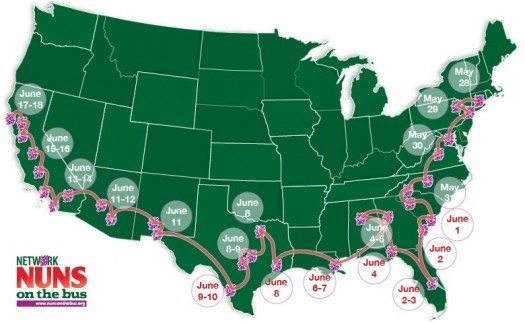

A group of nuns began their 6,500-mile bus journey late last month in New Jersey with a view of Ellis Island. Since then, their brightly-decorated blue bus with images of hands raised — to show support for families and immigration reform — has rolled for more than 5,000 miles down Eastern Seaboard roads and into the South. This week marks the California leg of the “Nuns on the Bus” tour supported by NETWORK, a national Catholic social justice group. The nuns’ goal during this 15-state, 40-city whirlwind event which ends on June 18: “Standing with immigrants, faith-filled activists, and Catholic Sisters who serve immigrant communities.”
Last Wednesday, the nuns were scheduled to speak with community groups in Nogales, Arizona and federal lawmakers in Phoenix. After the meeting with government leaders in Phoenix, they joined immigration groups to discuss the tour, the importance of family unity and citizenship for 11 million undocumented immigrants in the country,
» Read more about: Nuns on the Bus Tour to Reach San Francisco Today »
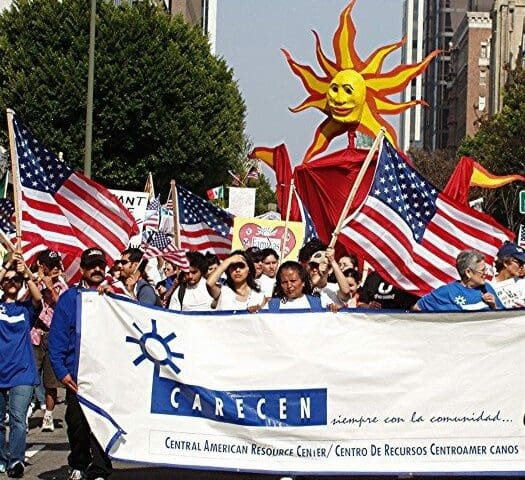

Maria Elena Durazo serves as Executive Secretary-Treasurer of the Los Angeles County Federation of Labor, which represents more than 600,000 union workers. She is also the Chair of the National AFL-CIO’s Immigration Committee and recently spoke to Frying Pan News about the pending immigration bill in Congress, as well as a new student film competition that her organization and UNITE HERE are sponsoring. (Part 1 of this interview appeared yesterday.)
Frying Pan News: Is there something in particular that bugs you about the immigration bill?
Maria Elena Durazo: Yes! We want to make sure that there’s an alternative to the past guest worker model. We’re hopeful that we can fix the language through what’s commonly referred to as the Labor-Chamber agreement. There are three elements to it. One, that there be an objective, data-driven analysis of the future needs of workers in this country.
» Read more about: The New America: A Talk With María Elena Durazo, Part 2 »
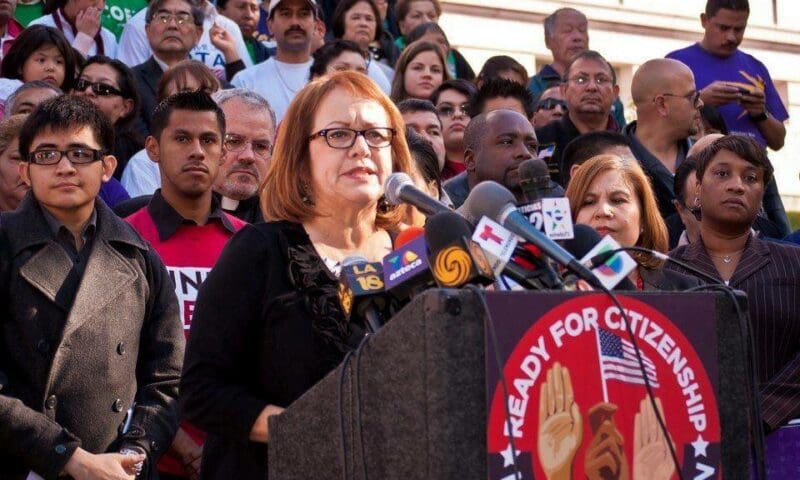

Seven years ago María Elena Durazo, the head of the Los Angeles County Federation of Labor, stood on a stage erected at the intersection of Wilshire Boulevard and La Brea Avenue, facing a sea of demonstrators who had just paraded miles in support of immigrant rights. In the twilight of that May Day, as Durazo addressed several hundred thousand people, the march for immigration reform seemed unstoppable – an irresistible historic tide that was poised to sweep away any objections.
Then came an angry backlash that saw anti-immigrant legislation passed in Arizona and Alabama that made Proposition 187 – California’s 1994 ballot initiative curbing immigrant rights – seem tame by comparison. Frying Pan News sat down with Durazo to discuss the pending immigration bill in Congress, as well as a new student film competition that her organization is sponsoring with UNITE HERE, a union whose members are largely immigrants.
» Read more about: The New America: A Talk With María Elena Durazo, Part 1 »


Within about a month of the debut of Fwd.us, Mark Zuckerberg’s new DC lobby outfit aimed at promoting immigration reform, the group is already falling apart. If this week is any indication, the meltdown will be as spectacular and ignoble as every other ill-conceived, overfunded start-up in the Valley.
Fwd.us’ political problems began the way they usually do: with a cynical, too-cute-by-half strategy adopted by his Beltway proxies. Fwd.us’ approach amounted to this: Buy the votes of key lawmakers by dumping money into ads in their home states on issues that are useful to them but that Mark Zuckerberg doesn’t care about.
What that has meant in practice is running commercials supporting South Carolina Senator Lindsey Graham for his bold opposition to Obamacare and his support of the Keystone XL Pipeline, and applauding Alaska Senator Mark Begich for his support for drilling in the Arctic National Wildlife Refuge.
» Read more about: Mark Zuckerberg’s Fwd.us Fail No Surprise »
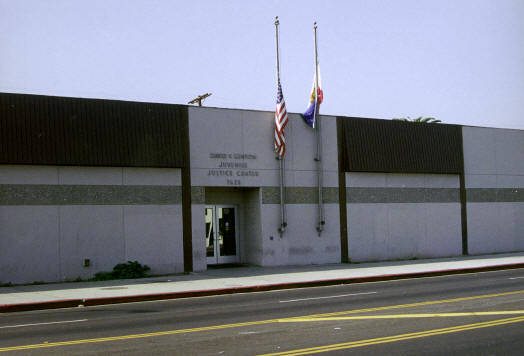

L.A. Superior Court judges are doing the wrong thing. They decided to deal with a $53 million budget deficit by arbitrarily closing eight courthouses around L.A. County, which will send justice into chaos, inconvenience people and cause transportation and other problems.
The courthouses scheduled to close as of June 28 or sooner are: Huntington Park, Whittier, Pomona North, Malibu, West Los Angeles, San Pedro, Beacon Street and the Kenyon Juvenile Justice Center, located in South L.A.
The Judges Didn’t Ask Us
Did the judges who came up with this plan consult the communities that will be impacted? No. Did they talk to the citizens, the small business people, or anyone else this might affect? No.
As a result, some case types will be heard in only certain courthouses. For example, if you are threatened with eviction or your landlord wants to kick you out of your place and you want to fight it,
» Read more about: Don’t Close the Courts of First Resort! »


As you’ve probably heard, the Senate is now selling a new brand of immigration reform bill called the Border Security, Economic Opportunity, and Immigration Modernization Act of 2013. Senators — both Democrat and Republican — have stirred together a complex and massive proposal that has potential to become law, driven by a strong showing of immigrant voters in the November election.
This proposal is a huge deal for everyone who eats, and therefore matters for those working for healthy, fair and sustainable food systems and food sovereignty. Food sovereignty is the right of people to determine their own food and agriculture policies — it’s the democratization of food and agriculture. This democratization includes food chain workers having a voice in their workplace, in their communities and in government.
Unjust free trade agreements and international trade policies have forced family farmers off their land and decimated domestic industries in other countries. Many people then face few choices other than migrating from their home countries in search of work,


The “Gang of 8” has finally introduced a bill in the U.S. Senate, giving millions of undocumented workers hope for an immigration reform in 2013. One of these workers is Anabella Aguirre who arrived from Guatemala over 13 years ago. As a single mother of three children, her choice to migrate to the United States was a difficult one. It meant she would have to leave her children and family members behind.
Anabella remains undocumented to this day because our immigration system is broken. During all these years, Anabella has worked as a janitor in Los Angeles. She is also a committed union member of SEIU United Service Workers West. Anabella is fighting with us for immigration reform. Her main motivation is her children’s education. “I hope one day to be able to send my daughters to college here in the United States,” says Aguirre.
Let’s kick off Mother’s Day month with a huge Labor turn-up on May Day.
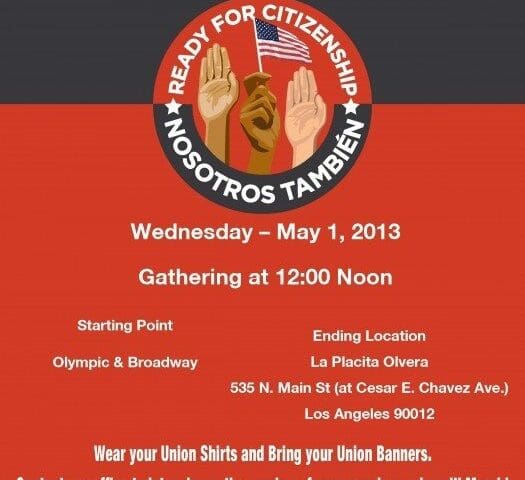
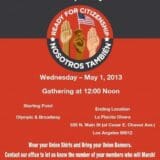
» Read more about: All Out May Day for Immigration Reform! »
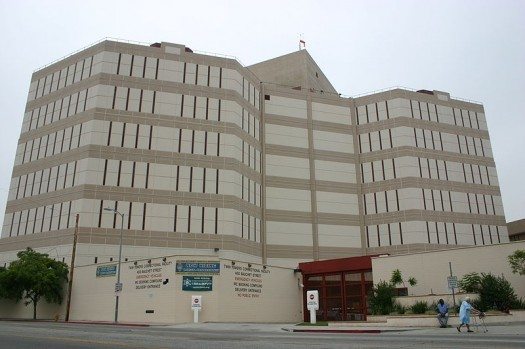

With jails straining to absorb thousands of prison inmates, jailhouse guard-on-inmate beatings grabbing headlines, and public concern rising about possible spikes in crime rates, public safety issues—especially around the massive Los Angeles County jail and probation systems—have Angelenos of all stripes scrambling for answers.
The just-concluded three-part, “Smart Justice: Rethinking Public Safety in California” discussion at the University of Southern California, capped off with a fourth session at the Pat Brown Institute, brought together key leaders—from top L.A. County public safety managers to heads of organizations charged with monitoring those systems—to identify often well-known problems, but also to propose potential solutions, cures that generally involve replacing “punishment” with “rehabilitation” in corrections thinking.
A Combustible Environment
“Los Angeles County has the largest probation department in the nation, the largest sheriff’s department, and the third largest police force in the L.A. Police Department,” said Alex Johnson from the Office of County Supervisor Mark Ridley-Thomas.
» Read more about: Facing Los Angeles’ Incarceration Dilemma »


The national discussion on immigration reform is heating up now that the “Gang of Eight” plans to release its detailed version of the Senate bill. As with similar efforts in past years to pass comprehensive immigration reform through Congress, the draft legislation to start the process will undergo massive changes as legislators debate the issue, especially as it moves into the House of Representatives. Yet one point has received considerably less attention in the national debate, but will probably make the most difference to most immigrants and the economy– the enforcement of workplace rights.
I have been involved in the debate on immigration reform now for more than 25 years, since the passage of the Immigration Reform and Control Act of 1986 (IRCA). I have seen the demographics of the country shift and have witnessed this debate in many stages and from many perspectives.
One thing we learned from the Immigration Reform Control Act (IRCA) of 1986 is that it fell dramatically short when it came to improving the working conditions of the estimated three million immigrants who gained legal status.
» Read more about: Immigration Reform Alone Won’t End Workplace Wrongs »


It was announced over the weekend the bipartisan Senate “Gang of Eight” came to an agreement in principle on a major aspect of creating a commonsense immigration process that benefits all workers.
This agreement includes a new kind of worker visa program called the W-Visa, which will work for everyone, not just employers.
Here are five things you need to know about this new employer-based visa:
» Read more about: Five Important Points of the Immigration Agreement »


A black man—Barack Obama—sits in the Oval Office. A black woman—Oprah Winfrey—joins Warren Buffett and Bill Gates on the Forbes magazine list of richest individuals in the world. A black couple—Jay-Z and Beyonce—own a basketball team and buy an $80,000 diamond-encrusted Barbie doll for their one-year-old daughter. With such examples of impressive success and vulgar excess it’s easy to think that America’s long history of racial inequality has come to an end.
But then along comes a Brandeis University study showing that even as racial inequalities in terms of education and income have narrowed, the gap in wealth between black and white families has dramatically widened. Between 1985 and 2009, the gap in wealth between white and black families nearly tripled. It may be tempting to imagine that poor choices or lack of a work ethic can explain the disparity, but the study found that for the most part, the wealth gap is not the result of differences in education,
» Read more about: The Winner-Take-All Economy: A Black and White Story »


As California grapples with a prison system so broken that the U.S. Supreme Court has mandated reductions in the number of prisoners it holds, the three-part “Smart Justice: Rethinking Public Safety in California” discussion begun this past week at the University of Southern California is examining both consequences and possible solutions to the state’s mass incarceration mess.
Moderated by Tomás Rivera Policy Institute director Roberto Suro, the first session—titled “California’s Corrections Systems and the Lives They Impact” and organized by Californians for Safety and Justice and USC’s Students Talk Back program—featured presentations by James Austin, president of the JFA Institute and author of a ground-breaking report on reducing prison populations, Susan Burton, former inmate and founder of A New Way of Life Reentry Program, and USC graduate students Emily Reisner and Jennifer Moore.
A New Way of Life
“Each time I got out of prison,
» Read more about: Ending California’s Incarceration Quagmire »
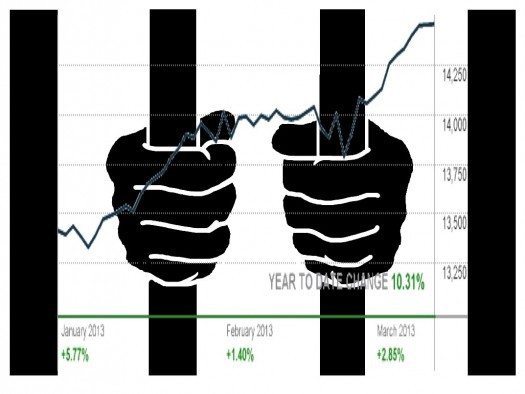

How will America, which espouses the virtues of forgiveness and freedom, successfully deal with the thousands of people who leave its prisons every year? As the nation with the highest incarceration rate in the world, the United States has a unique responsibility to chart a different, more humane course towards incarceration. Fifty years after the historic March on Washington helped usher the end of legally sanctioned discrimination, the formerly incarcerated remain stripped of basic rights. In many states they can’t vote, live in public housing or receive public assistance. And so they end up recycled in and out of some of America’s most deplorable institutions.
In the same way that Mississippi or Alabama were vital battlefronts in the struggle for civil rights a half century ago, California, with the country’s largest prison population, is ground zero for what many see as the major social and political issue of today. Like other states in the 1980s and 1990s,
» Read more about: Breaking Our Addiction to Incarceration »


We’re still legislating and regulating private morality, while at the same time ignoring the much larger crisis of public morality in America.
In recent weeks Republican state legislators have decided to thwart the Supreme Court’s 1973 decision in “Roe v. Wade,” which gave women the right to have an abortion until the fetus is viable outside the womb, usually around 24 weeks into pregnancy.
Legislators in North Dakota passed a bill banning abortions after six weeks or after a fetal heart beat had been detected, and approved a fall referendum that would ban all abortions by defining human life as beginning with conception. Lawmakers in Arkansas have banned abortions within twelve weeks of conception.
The morality brigade worries about fetuses, but not what happens to children after they’re born. They and other conservatives have been cutting funding for child nutrition, healthcare for infants and their mothers, and schools.
An ounce of prevention is worth a pound of cure. A stitch in time saves nine. One dollar spent on contraception saves three on pregnancy and newborn care, and that is just the beginning.
Nationally, we spend 11 billion taxpayer dollars a year on unintended pregnancies. But who’s counting? Automatic cuts built into the sequester slashed $86 million from family planning and reproductive health care for poor women. But that is not enough for Congressional Republicans, who are trying yet again to roll back the contraceptive mandate. If there ever was an indication that they are more interested in ideology than balanced budgets, this is it.
Research published this fall showed that effective, affordable, accessible contraception dramatically drops the rate of unintended pregnancy and related public health costs. In the study, whose co-author explained that it was essentially designed to mimic what Obamacare would have provided,
» Read more about: Contraceptive Mandate: Another Budget Hostage »
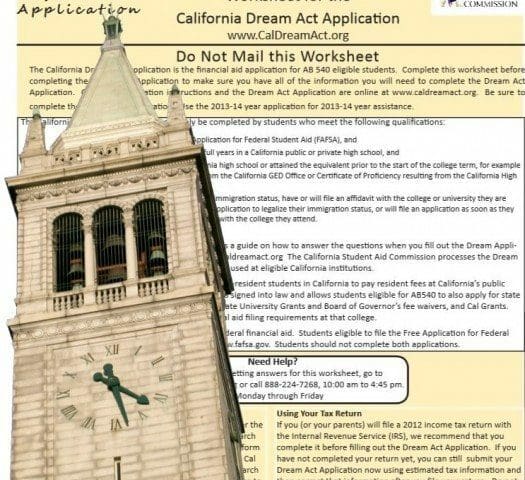

The California Dream Act went into effect on Jan. 1, allowing thousands of immigrant students a chance for the first time to apply for state financial aid to help pay tuition at state colleges and universities.
Within hours of going live, the online application system was overwhelmed by applicants and shut down.
“It was the first time the California Dream Act was implemented and we had some bugs,” said Patti Colston, a spokeswoman for the California Student Aid Commission.
“As soon as we found out, we contacted and notified students. To make sure their privacy was protected, we asked about 1,000 students to resubmit their applications,” she said, adding that no applications were lost.
By the March 2 deadline, 20,000 applications were received, said Colston. So far, 3,600 financial awards have been made to Dream Act-eligible students, averaging about $4,000 each. Applications are still being processed.
» Read more about: This Dream Is No Act — California Aids Immigrant Students »


Janice Slaughter often takes her 19-month-old granddaughter to the Tiny Tots child care center in Jackson, Mississippi, or picks her up in the afternoon so that her daughter, the baby’s mother, can attend school.
Slaughter brought her own children to the same center when they were babies and has known the owner for years.
But, soon, she and her daughter, who receives a federally funded child care subsidy administered by the state, will be required to scan their fingers on a device at Tiny Tots whenever they bring in the baby or pick her up. Everyone else will just walk right in and out.
Susan Williams scans her finger when she picks her daughter up from child care in Jackson, Mississippi. “I don’t mind it, but I really don’t see the point in it, I don’t understand why it’s necessary,” she said. “You have to stand in line and wait for it.”
“It’s inconvenient,
» Read more about: Fingerprinting Indigent Mothers and Other Shaming Rites »